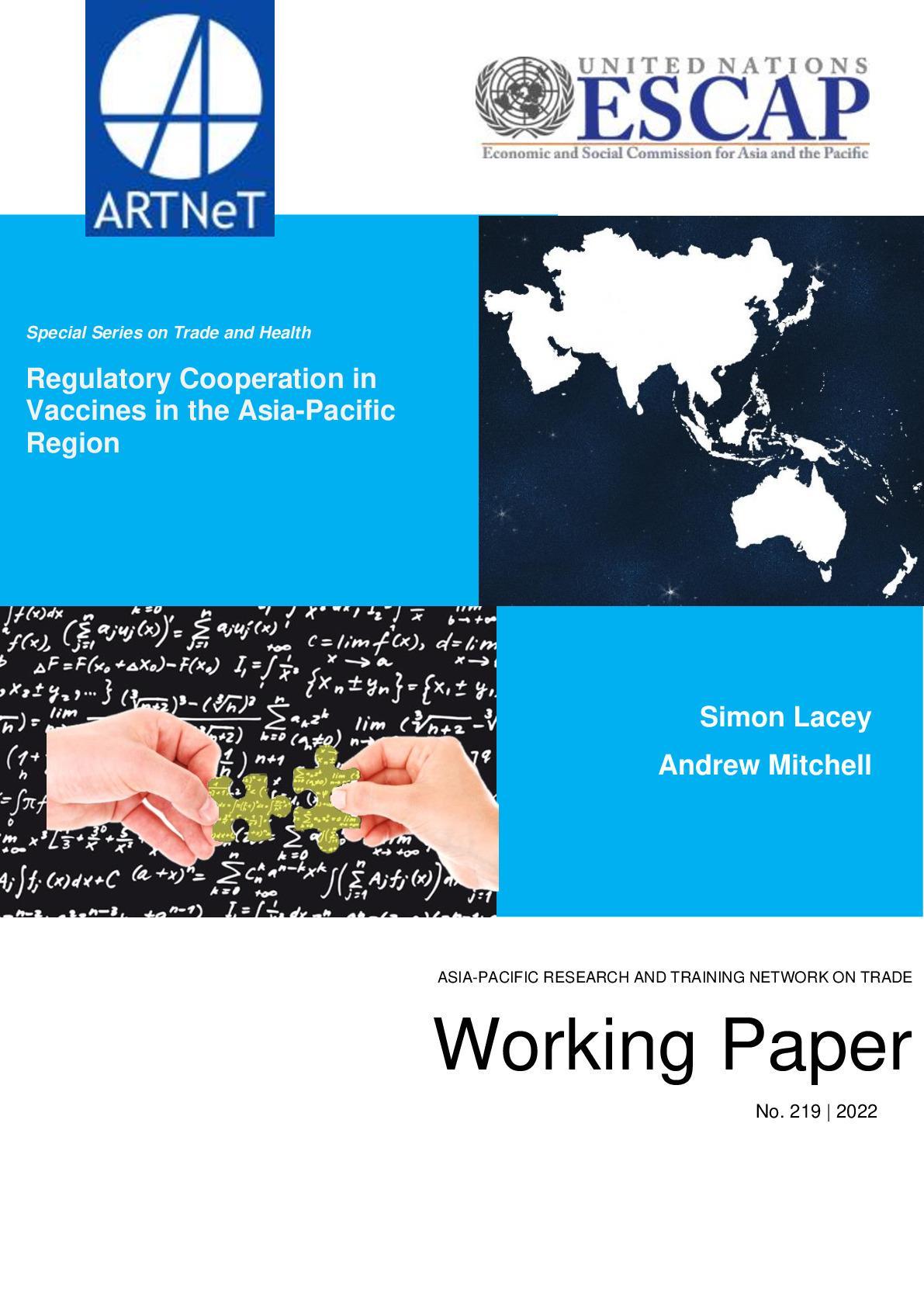Regulatory Cooperation in Vaccines in the Asia-Pacific Region

The global health crisis that came to be known as the COVID-19 pandemic and started to sweep across the world in early 2020 revealed many vulnerabilities in the economic, social, and political fabric underpinning what much of the world had come to accept as normal. In ways that we are still grappling to understand, the pandemic and the many disruptions it brought about have ushered in significant changes to the way we work, consume, spend our leisure time, and even our relationships to government. In many ways, the pandemic has wrought a significant realignment between citizens and governments, both in terms of the expectations the former have of the latter and the powers the latter claims and exerts over the former. This paper explores the ways in which medicines (of which vaccines are a subset) are regulated today and what goals governments generally pursue in this policy area. It then turns to an examination of international regulatory cooperation in medicines before examining the unprecedented levels of international cooperation seen in response to the COVID-19 pandemic between not only governments but also the private sector and non-governmental organizations. The paper seeks to elucidate the regulatory cooperation in the area of vaccines that took place during the COVID-19 pandemic in the Asia-Pacific and concludes by discussing the present outlook while also setting out some policy recommendations for governments going forward.
